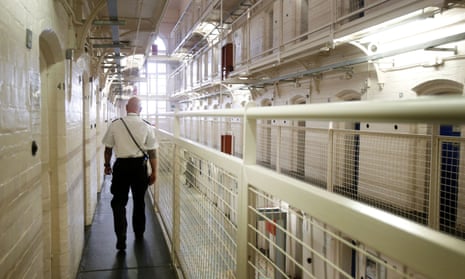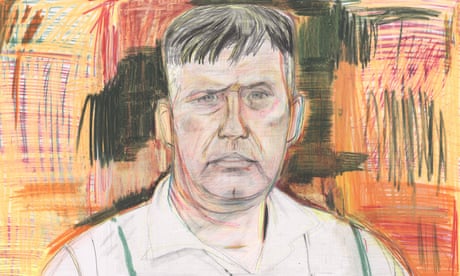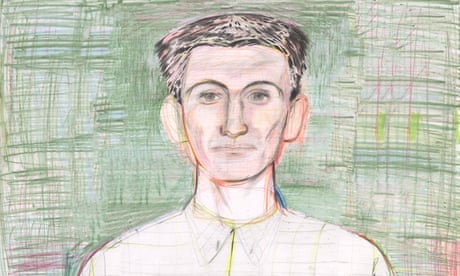UK
Unfair jail sentences – one more example of demonising society’s ‘morally unfit’
The IPP scandal should not be seen in isolation. It is all part of today’s politics by vilification
The IPP scandal should not be seen in isolation. It is all part of today’s politics by vilification

According to UNGRIPP, 287 people who received IPPs have died in prison, 90 having taken their own life.
Photograph: Danny Lawson/PA
Kenan Malik
THE OBSERVER
THE OBSERVER
Sun 5 May 2024
David Blunkett acknowledged last week that it was the “biggest regret” of his political life. As home secretary under Tony Blair in 2001, Blunkett was the architect of the “imprisonment for public protection” scheme, or IPP.
Under the IPP system, offenders were given a sentence (or “tariff”) proportionate to the offence committed. Once that sentence was completed, the offender was not released but remained imprisoned for as long as the Parole Board deemed them a “risk to society”. And when finally released, they remained on licence, meaning they could be recalled to prison at any time for minor breaches of regulation, or even because, as MPs discovered, of a “lack of… suitable accommodation”.
In 2006, Martin Myers threatened a man as he tried to cadge a cigarette. He was given an IPP sentence with a tariff of 19 months and 27 days. Eighteen years later, he is still in prison. Last October, he was finally released, but recalled to prison 10 weeks later – for taking Valium to ease anxiety. “I couldn’t believe it,” wrote Simon Hattenstone, the Guardian journalist who told his story. “But it was true.” It is the sheer arbitrary viciousness of the IPP regime that takes one aback.
In 2007, Wayne Bell was given an IPP sentence for punching a man and stealing his bike. He is still in prison. As is Aaron Graham, who in 2005 was given an IPP sentence with a tariff of two years and 124 days. Almost 20 years later, he is the longest serving IPP prisoner.

Martin Myers tried and failed to steal a cigarette. Why has he spent 18 years in prison for it?
According to the campaigning organisation United Group for Reform of IPP (UNGRIPP), 287 people who received an IPP sentence have died in prison, 90 having taken their own life. IPP prisoners are almost three times as likely to self-harm as prisoners with determinate sentences and even those serving life. So egregiously cruel was the IPP regime that the coalition government abolished it in 2012. The law, however, was not made retrospective; those already convicted remained in jail. In 2012, there were around 6,000 IPP prisoners. Today there are still almost 3,000, of whom more than a thousand have never been released, the remainder having been recalled to prison.
Last December, more than 1,600 IPP prisoners had served at least 10 years beyond their tariff. Of these, 193 had originally been given a tariff of less than two years; they had spent at least 12 years behind bars .
Everyone agrees that IPP sentences are a disgrace. Yet, since their abolition, policy to remedy the continuing injustice has been at best begrudging. In 2022, the Commons justice select committee recommended new legislation to allow all IPP prisoners still in jail to be “resentenced”. This, it observed, “is the only way to address the unique injustice caused by the IPP sentence and its subsequent administration, and to restore proportionality to the original sentences that were given”.
The IPP regime is a morbid illustration of how the moralising of social problems can lead politicians to leverage cruelty as a social good
The government rejected the recommendation. Instead, last November it introduced a scheme whereby IPP prisoners who have already been released will have their period of licence – when they can be recalled to prison – cut to three years if the Parole Board agrees, or five years irrespective of the board’s verdict. The scheme will not, however, change the status of IPP prisoners still in jail. Martin Myers, Wayne Bell, Aaron Graham, and the almost 3,000 other IPP prisoners who remain behind bars will continue to be left to rot.
In rejecting the justice committee’s recommendation, the then justice secretary Dominic Raab claimed it “could lead to the immediate release of many offenders who have been assessed as unsafe”. Introducing the new half-hearted remedy, current justice secretary Alex Chalk insisted that it was preferable to the select committee suggestion because it would “make sure the public are protected from the most serious offenders”. These are the same kind of fearmongering claims that brought IPPs into being in the first place.

Tommy Nicol was kind and friendly – a beloved brother. Why did he die in prison on a ‘99-year’ sentence?
Read more
The IPP regime was introduced as part of New Labour’s “respect” agenda, to help to restore, in Blair’s words to the 2005 Labour party conference, “the loss of a value which is a necessary part of any strong community; proper behaviour; good conduct; the unselfish notion that the other person matters”. But, like the Windrush scandal the following decade, it was also the product of a deliberately engineered “hostile environment”, this one directed not against black Britons deemed not British enough, but against working-class people judged not to be sufficiently morally fit.
The policies of the respect agenda, such as the introduction in 1998 of “antisocial behaviour orders”, or asbos, singled out certain social groups, from “problem families” to benefit scroungers, as moral obstacles. In so doing, they helped reduce respect for certain groups of people and thereby erode our sense of mutual obligation – the very themes that Blair sought to restore in his 2005 speech.
Blair claimed these policies drew on the work of sociologist Richard Sennett and his ideas of social solidarity. “A chill came over me,” Sennett shuddered on hearing that.
In presenting social problems as the product of the moral failure of certain individuals and groups, Labour sought to foster respect by disrespecting the rights and needs of targeted groups. The consequence was that working-class communities were disproportionately affected not only by the breakdown of social bonds, but also by the policies aimed at addressing that breakdown, from harsher policing to stricter benefits regimes.
The top-down attempt to reform social behaviour, Sennett observed, was a betrayal of working-class people, “the manufacture of policy becoming a smokescreen hiding just how difficult society’s problems have become”.
The IPP regime provides a morbid illustration of how the moralising of social problems can lead politicians to leverage cruelty as a social good. The current Tory government, faced with electoral oblivion, has come to rely on little more than such performative cruelty, displayed in policies from the Rwanda deportation scheme to the two-child benefit cap to the latest assault on “sicknote culture”.
The continuing reluctance to properly remedy the injustices of IPPs is scandalous. The IPP story should not, though, be seen in isolation. It exposes most brutally the consequences of politics by demonisation.
We need a final reckoning with the continuing distressing legacy of IPPs. We need a reckoning, too, with the politics of vilification, in whatever form it arises.
Kenan Malik is an Observer columnist
David Blunkett acknowledged last week that it was the “biggest regret” of his political life. As home secretary under Tony Blair in 2001, Blunkett was the architect of the “imprisonment for public protection” scheme, or IPP.
Under the IPP system, offenders were given a sentence (or “tariff”) proportionate to the offence committed. Once that sentence was completed, the offender was not released but remained imprisoned for as long as the Parole Board deemed them a “risk to society”. And when finally released, they remained on licence, meaning they could be recalled to prison at any time for minor breaches of regulation, or even because, as MPs discovered, of a “lack of… suitable accommodation”.
In 2006, Martin Myers threatened a man as he tried to cadge a cigarette. He was given an IPP sentence with a tariff of 19 months and 27 days. Eighteen years later, he is still in prison. Last October, he was finally released, but recalled to prison 10 weeks later – for taking Valium to ease anxiety. “I couldn’t believe it,” wrote Simon Hattenstone, the Guardian journalist who told his story. “But it was true.” It is the sheer arbitrary viciousness of the IPP regime that takes one aback.
In 2007, Wayne Bell was given an IPP sentence for punching a man and stealing his bike. He is still in prison. As is Aaron Graham, who in 2005 was given an IPP sentence with a tariff of two years and 124 days. Almost 20 years later, he is the longest serving IPP prisoner.

Martin Myers tried and failed to steal a cigarette. Why has he spent 18 years in prison for it?
According to the campaigning organisation United Group for Reform of IPP (UNGRIPP), 287 people who received an IPP sentence have died in prison, 90 having taken their own life. IPP prisoners are almost three times as likely to self-harm as prisoners with determinate sentences and even those serving life. So egregiously cruel was the IPP regime that the coalition government abolished it in 2012. The law, however, was not made retrospective; those already convicted remained in jail. In 2012, there were around 6,000 IPP prisoners. Today there are still almost 3,000, of whom more than a thousand have never been released, the remainder having been recalled to prison.
Last December, more than 1,600 IPP prisoners had served at least 10 years beyond their tariff. Of these, 193 had originally been given a tariff of less than two years; they had spent at least 12 years behind bars .
Everyone agrees that IPP sentences are a disgrace. Yet, since their abolition, policy to remedy the continuing injustice has been at best begrudging. In 2022, the Commons justice select committee recommended new legislation to allow all IPP prisoners still in jail to be “resentenced”. This, it observed, “is the only way to address the unique injustice caused by the IPP sentence and its subsequent administration, and to restore proportionality to the original sentences that were given”.
The IPP regime is a morbid illustration of how the moralising of social problems can lead politicians to leverage cruelty as a social good
The government rejected the recommendation. Instead, last November it introduced a scheme whereby IPP prisoners who have already been released will have their period of licence – when they can be recalled to prison – cut to three years if the Parole Board agrees, or five years irrespective of the board’s verdict. The scheme will not, however, change the status of IPP prisoners still in jail. Martin Myers, Wayne Bell, Aaron Graham, and the almost 3,000 other IPP prisoners who remain behind bars will continue to be left to rot.
In rejecting the justice committee’s recommendation, the then justice secretary Dominic Raab claimed it “could lead to the immediate release of many offenders who have been assessed as unsafe”. Introducing the new half-hearted remedy, current justice secretary Alex Chalk insisted that it was preferable to the select committee suggestion because it would “make sure the public are protected from the most serious offenders”. These are the same kind of fearmongering claims that brought IPPs into being in the first place.

Tommy Nicol was kind and friendly – a beloved brother. Why did he die in prison on a ‘99-year’ sentence?
Read more
The IPP regime was introduced as part of New Labour’s “respect” agenda, to help to restore, in Blair’s words to the 2005 Labour party conference, “the loss of a value which is a necessary part of any strong community; proper behaviour; good conduct; the unselfish notion that the other person matters”. But, like the Windrush scandal the following decade, it was also the product of a deliberately engineered “hostile environment”, this one directed not against black Britons deemed not British enough, but against working-class people judged not to be sufficiently morally fit.
The policies of the respect agenda, such as the introduction in 1998 of “antisocial behaviour orders”, or asbos, singled out certain social groups, from “problem families” to benefit scroungers, as moral obstacles. In so doing, they helped reduce respect for certain groups of people and thereby erode our sense of mutual obligation – the very themes that Blair sought to restore in his 2005 speech.
Blair claimed these policies drew on the work of sociologist Richard Sennett and his ideas of social solidarity. “A chill came over me,” Sennett shuddered on hearing that.
In presenting social problems as the product of the moral failure of certain individuals and groups, Labour sought to foster respect by disrespecting the rights and needs of targeted groups. The consequence was that working-class communities were disproportionately affected not only by the breakdown of social bonds, but also by the policies aimed at addressing that breakdown, from harsher policing to stricter benefits regimes.
The top-down attempt to reform social behaviour, Sennett observed, was a betrayal of working-class people, “the manufacture of policy becoming a smokescreen hiding just how difficult society’s problems have become”.
The IPP regime provides a morbid illustration of how the moralising of social problems can lead politicians to leverage cruelty as a social good. The current Tory government, faced with electoral oblivion, has come to rely on little more than such performative cruelty, displayed in policies from the Rwanda deportation scheme to the two-child benefit cap to the latest assault on “sicknote culture”.
The continuing reluctance to properly remedy the injustices of IPPs is scandalous. The IPP story should not, though, be seen in isolation. It exposes most brutally the consequences of politics by demonisation.
We need a final reckoning with the continuing distressing legacy of IPPs. We need a reckoning, too, with the politics of vilification, in whatever form it arises.
Kenan Malik is an Observer columnist
No comments:
Post a Comment